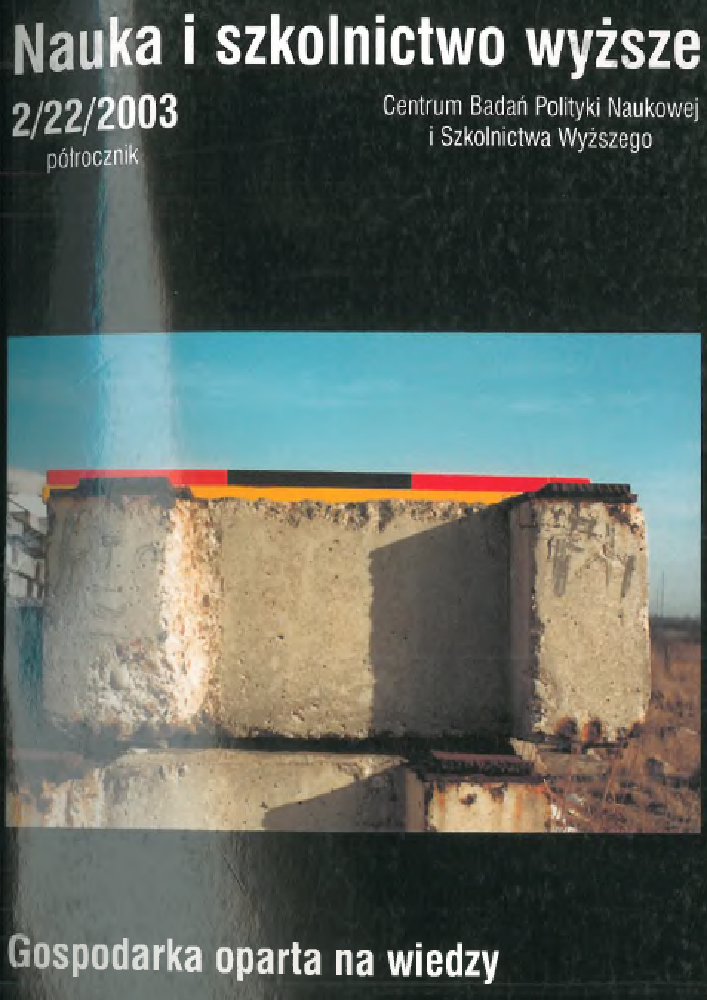Abstrakt
Autor zajmuje się problemem formalnego (ilościowego) i miękkiego (jakościowego) modelowania przepływu informacji w systemach autonomicznych, które w praktyce kształtowane są przez podsystemy składające się z ludzi, maszyn, robotów itd. W nauce o zarządzaniu modele konstruuje się i stosuje w celu opisania, zrozumienia, a wreszcie wsparcia procesów i działań, które mają charakter przede wszystkim intelektualny. Problemy, którymi zajmują się te modele mogą się pojawiać tak często, że poszukuje się korzyści wynikających ze standaryzacji lub mogą być sytuacjami jednostkowymi o takiej wadze, że podejmuje się kroki w celu poprawy jakości rezultatu podjętej decyzji. Inaczej mówiąc, modele opracowuje się głównie w celu stworzenia wiedzy. Jest to również główny cel platformy modelowania zaproponowanej w artykule.
Bibliografia
Bajgoric J. 1997 Organizational Systems Integration: Management Information Systems Perspective, „Concurrent Engineering: Research and Application”, nr 5, s. 113-123.
Bogdan R.J. 2000 Minding Minds, MIT Press, Boston.
Chartrand G., Oellermann O.R. 1993 Applied and Algorithmic Graph Theory, McGraw-Hill, New York.
Gersting J.L. 1982 Mathematical Structures for Computer Science, Freeman, New York.
Gunasekaran A., Sarhadi M. 1997 Planning and Management Issues in Enterprise Integration, „Concurrent Engineering. Research and Application”, nr 5, s. 98-100.
Hogg R.V, Ledolter J. 1992 Applied Statistics for Engineers and Physical Scientists, Macmillan, New York.
Hogg R.V., Tanis E.A. 1993 Probability and Statistical Inference, Macmillan, New York.
Kamrani A.K., Sferro P.R. 1999 Direct Engineering: Toward Intelligent Manufacturing, Kluwer, London.
Kreyszig E. 1983 Advanced Engineering Mathematics, Wiley, New York.
Matsumoto G. 1999 Brain Computing, „Artificial Life and Robotics”, nr 3, s. 24-27.
McKay R.I., Sarker R, Yao X. 2000 Intelligent and Evolutionary Systems, „International Journal of Knowledge-based Intelligent Engineering Systems”, nr 4, s. 141-143.
Morabito F.C. 1997 Advances in Intelligent Systems, IOS Press, Amsterdam.
Morimoto T. 2001 Application for Communication Agent w: Baba, Jain, Howlett: Knowledge-based Intelligent Information Engineering Systems and Allied Technologies, IOS Press, Amsterdam, s. 1619-1621.
O'Grady P 1999 The Age of Modularity, Adams and Steele, Iowa.
Pedrycz W., Bargiela A. 2001 Information Granulation, w: Baba, Jain, Howlett (eds.): Knowledge-based Intelligent Information Engineering Systems and Allied Technologies, IOS Press, Amsterdam, s. 1147-1152.
Prakken B. 2000 Information, Organisation and Information Systems Design, Kluwer, Boston.
Quinlan J.R. 1990 Decision Trees and Decision Making, „IEEE Transactions on Systems, Man, and Cybernetics”, nr 20, s. 339-346.
Safavian S., Landgrebe D. 1991 A Survey of Decision Tree Classifier Methodology „IEEE Transactions on Systems, Man, and Cybernetics”, nr 21, 660-668.
Szczerbicki E. 1996a Decision Trees and Neural Networks for Reasoning and Knowledge Acquisition for Autonomous Agents, „International Journal of Systems Science”, nr 27.
Szczerbicki E. 1996b External Environment of an Autonomous Manufacturing Agent: Dynamics and Representation, „International Journal of Systems Science”, nr 27, s. 1211-1218.
Szczerbicki E. 2000 Simulation Modelling for Complex Production Systems, „Cybernetics and Systems. An International Journal”, vol. 31, nr 3, s. 333-351.
Szczerbicki E. 2002a Intelligent Integration for Autonomous Manufacturing Systems, „International Journal of Knowledge-based Intelligent Engineering Systems”, vol. 6, nr 4, s. 214-219.
Szczerbicki E. 2002b Soft Modelling Support for Information Management, „Cybernetics and Systems. An International Journal”, vol. 33, nr 4, s. 413-426.
Tharumarajah A. 1998 A Self-organising Model for Scheduling Distributed Autonomous Manufacturing Agents, „Cybernetics and Systems. An International Journal”, nr 29, s. 461-480.
Theil H. 1971 Principles of Econometrics, Wiley, New York.
Wyzalek J. 1999 Systems Integration Success, Auerbach, London.
